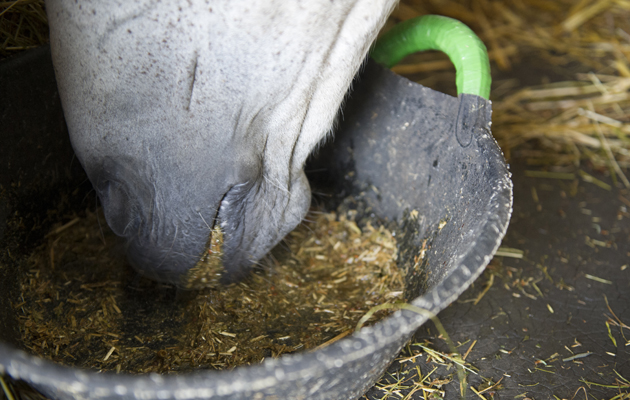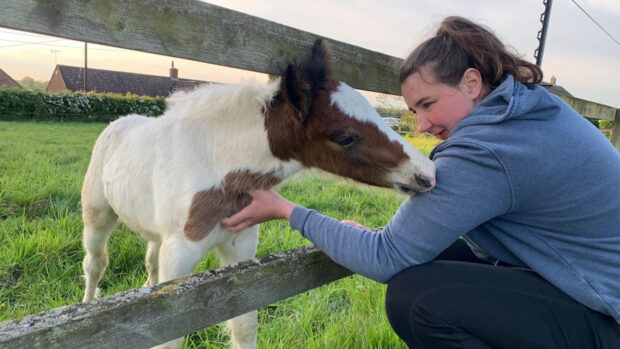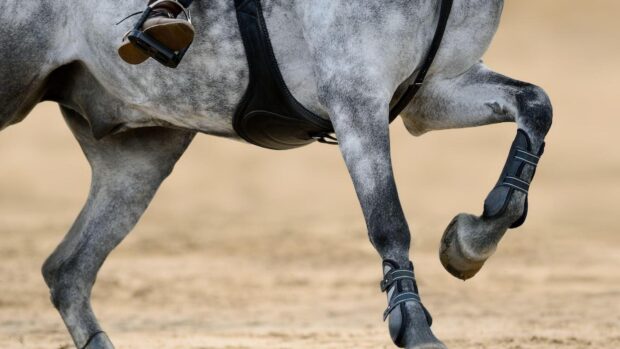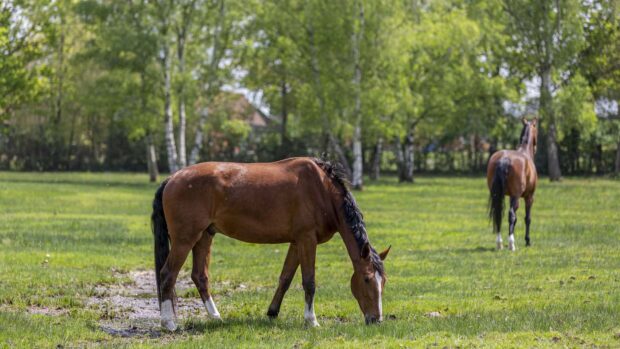We must ask “why we are still sleep-walking down this road”, World Horse Welfare’s chief executive has warned, as many horses’ lives are made miserable from good intentions.
In his summing-up of the charity’s annual conference yesterday (30 November), Roly Owers said all those who deal with equines “must be open to learning more about them”.
He said education – and behaviour change – is key to protecting those who could otherwise become “invisible horses of the future”, the title of this year’s conference.
“We have made huge progress in equine health and welfare, but too many of us still fail to learn lessons – fail to challenge the status quo – which can and does result in profound invisible suffering,” he said.
“For more than a decade, alarm bells have been ringing about how our horses and ponies are getting fatter and about emerging conditions such as equine metabolic syndrome, yet owners continue to overfeed, under-exercise and generally pamper their equines like pets.
“We rug Shetlands in winter, thoroughbreds in summer whatever the weather, making their lives a misery and all too often leading to an early death through debilitating diseases such as laminitis. Collectively we have to ask why we find ourselves still sleep-walking down this road.”
Mr Owers went on to cite aggressive training methods and over-competing as welfare issues, adding that we should take more time to listen to what horses are telling us.
“But yet still too many people assume behaviour not to their liking is the horse’s fault,” he said. “This myth desperately needs busting.”
Research
Mr Owers spoke about Animal Health Trust research into lameness and September’s ground-breaking study into rider weight as issues also affecting welfare.
“We understand that with so much information out there – both on and offline – and more scientific evidence being generated all the time, it can feel like a proverbial minefield where owners do not know which way to turn,” he said. “This is why it is so important to listen to your vet, your farrier and to charities like World Horse Welfare.
“But we also need to challenge ourselves whether we are really open to new ideas – most especially ones that we initially might not agree with.”
Mr Owers’ second point was the importance of governments, companies and regulators in ensuring compliance with relevant legislation, adding: “So many laws have been, in part, introduced or shaped by us and other organisations – but they amount to a hill of beans if no one takes heed of them, or authorities have no resources or political will to enforce them.”
World Horse Welfare welcomed the government’s recent ruling on CCTV in slaughterhouses and its commitment to animal sentience in UK law, but Mr Owers repeated the charity’s previous calls on equine identification being “fundamental to protecting horse welfare”, adding that he looks forward to the Central Equine Database.
“Thirdly and finally, we must deal with the world as it is, and offer workable solutions, not just talk about how we want it to be,” he concluded. “Our world is changing, but not always for better: fake news, political and cultural divisions, climate change, inequality, intolerance, the insecurity of food supplies and financial systems, cybercrime and terrorism.
“But there is also the rise in the power of the people, the greater ease of communication, the building of communities across borders and more information, data and opportunities for positive change than ever before. How do we best harness this opportunity to create a world that makes the invisible horses, visible, and that prevents invisibility happening in the first place?
“World Horse Welfare believes change can best be achieved by offering real-world, workable solutions.”

Overweight riders asked to dismount at show
The organising committee ruled that anyone deemed to be too heavy for their mount would be spoken to

Heavy riders have impact on horse welfare
Riding schools have told H&H they are having to change the way they work to accommodate increasingly heavy clients. But

Owners struggling to spot overweight horses
A survey has found that owners could be struggling to see when a horse is overweight
Mr Owers explained that this included not calling for bans on issues such as tethering, as this is likely to drive movements underground and therefore make the horses involved less visible still.
“We have to listen to each other, no matter where we are on the spectrum of animal rights or animal welfare, industry or charity, or whether we consider horses pets or farm animals,” he said. “We all view horses in our own individual ways and we must understand each other’s perspectives if we are to work together to build a better future for them.”
For more from the conference, see next week’s H&H magazine, out 7 December.





